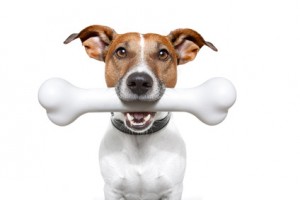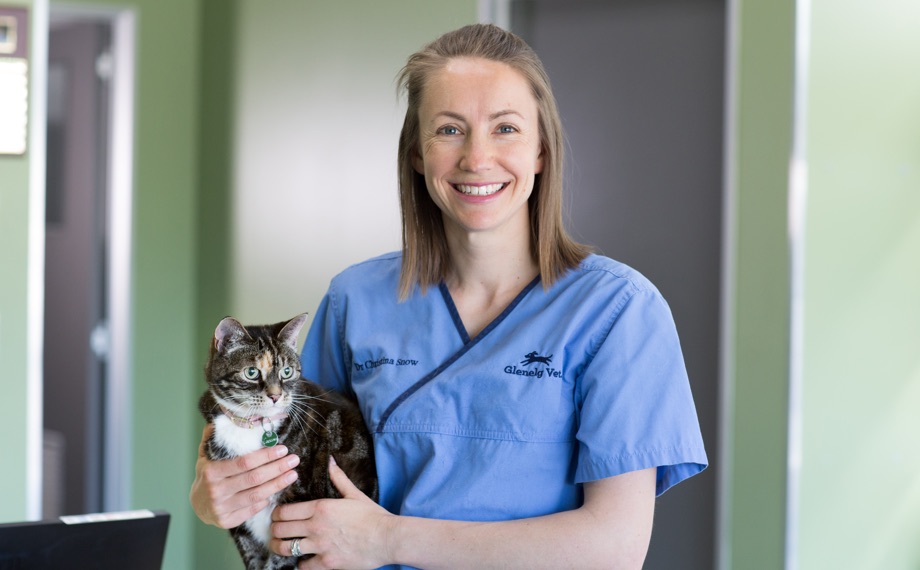

Dr Christina Snow
A bone of contention....
As vets we are commonly asked the question of whether or not to feed dogs bones. The answer to that question really depends on a lot of factors, such as the age and breed of the dog, previous medical conditions and the type of bone. The following list outlines some of the pros and cons of a diet containing bones.
The case for bones:
Bones provide stimulation and environmental enrichment. Many suburban dogs are left alone for long hours so a bone to gnaw on, bury and dig up can help fill in this lonely time. Keeping a pet busy gnawing a bone may help prevent other undesirable behaviours such as barking.
Bones can help keep teeth clean through their abrasive ‘brushing’ action.
Some believe it is a natural part of dog behaviour to be able to chew on a bone regularly.
The case against bones:
Although bones do help keep teeth clean and free from plaque, constant gnawing can cause significant wear and may even fracture teeth.
When bones chewed up, small fragments can compact as they pass through the intestines and form a “boney brick” of faeces that is difficult and painful to pass.
The inside of large bones contains marrow, which has a high fat content. A diet high in fat can predispose pets to obesity and serious medical conditions such as pancreatitis.
Bones can become wedged across the roof of the mouth or around the teeth. Large bone fragments and spiky bones (such as kangaroo tails and T-bones) can also get lodged in the digestive tract.
Bones are a common source of conflict in multiple dog households. Many a friendly doggy relationship has been shattered over a bone war.
Many dogs like to bury their bones to eat at a later date. This can become problematic when a dog digs up and eats a rotting, decomposing bone. This often leads to gastrointestinal upset (vomiting and diarrhoea) bad breath and sometimes more serious health complications like salmonella.
Before feeding your dog bones,feel free to come in to talk to us here at Glenelg Vet about their suitability for your pet. Never feed cooked bones as they are very prone to splintering and causing gastrointestinal obstruction or perferation. Always separate or supervise dogs in a multi-dog household when feeding bones as food competition and aggression often arises.
A good alternative to bones:
Try to feed things like pigs ears, veggie ears, raw hide chews and Oravet Chews as well as t/d dry food. These promote oral health without the risks associated with feeding bones.
Glenelg Vet
597 Anzac Highway, Glenelg
South Australia 5045
Ph: 08 82951312
fax: 08 8376 4866
e: info@glenelgvet.com.au
Opening Hours
Monday-Friday 8.00am - 6.30pm
Saturday 9.00am - 2.00pm
